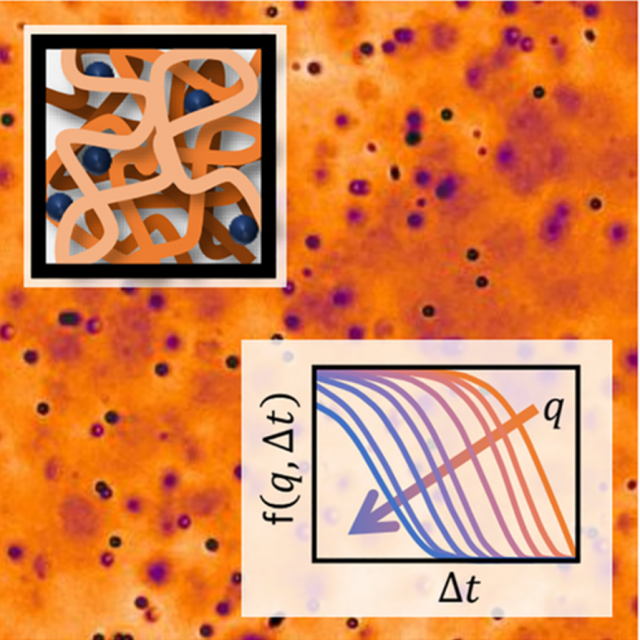Differential Dynamic Microscopy for the Characterization of Polymer Systems
An overview of recent progress in investigating polymer systems by using Differential Dynamic Microscopy.

PIs and Institution
Matthew Helgeson (UCSB)
Achievement
This paper presents an overview of recent progress in investigating polymer systems by using Differential Dynamic Microscopy (DDM) or “dynamic light scattering on a microscope”. DDM enables access to sample dynamics across a wide range of scattering wave-vectors using video microscopy, enabling contemporary polymer science experiments that would otherwise be difficult or impossible with standard light scattering techniques. Application examples include the characterization of polymer solutions and networks, polymer-based colloidal systems, biopolymers and proteins, and of cellular motility in polymeric fluids. This review summarizes current applications of DDM and highlights potential near-term applications that can be influenced and accelerated by the application of the DDM-UQ software developed through an earlier BioPACIFIC MIP project (Highlight 006).
Importance of the Achievement
DDM holds promise to combine scattering and imaging methods in a central and multi-faceted tool for the characterization of polymeric materials and systems. However, it has not been fully adopted as a routine characterization tool, largely due to computational cost and lack of algorithmic robustness. The recently established DDM with uncertainty quantification (DDM-UQ) software can dramatically affect all DDM applications by reducing computational times by a factor of 25-120.
Unique Features of BioPACIFIC MIP that Enabled this Achievement
Leveraging financial support for materials and research Fellows, BioPACIFIC MIP researchers have developed a state-of-the-art high throughput microrheology tool equipped with DDM-UQ capabilities. The capabilities reviewed in this paper are now available to the research community through the MIP’s proposal process and user program.